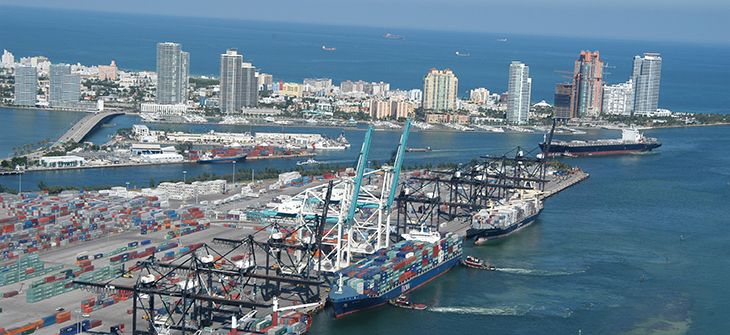- ‘Why Deepwater Fields Produce 41% of Nigeria’s Total Oil Output’
Oil production from deep-water acreages, carried out through the production sharing contract (PSC), accounts for 41 per cent of Nigeria’s total oil production, the Group Managing Director of Nigerian National Petroleum Corporation (NNPC), Dr. Maikanti Baru, has said.
Speaking at a forum in Lagos, he commended the success of deepwater fields operation. He said the PSC production growth rate and contribution is 41 per cent of national production with phenomenal growth rate of over 2000 per cent within 10 years.
He added that lack of injection of required investment in Joint Venture (JV) operations and small independents is responsible for the development. If the JVs and others get the required investments, production will shoot up substantially.
He explained that that is the reason the Federal Government is backing alternative funding for oil production and why small indigenous exploration and production firms should adopt the same option.
The NNPC boss noted that a new class of players, including small local independents with non-diversified portfolio and lean balance sheet but with track record, could raise funds from international financiers because they contribute about 15 per cent of national production and require substantial capital/funds for growth.
He explained the importance of diversified players, including locals as against the trend where the international oil companies (IOCs) and the National Oil Company dominate oil exploration and production.
Baru said the trend was changing to an arrangement involving IOCs and locals. To him, global competition was increasing. He said though Nigeria has good geology and huge prospect, he noted that new production centres were emerging across the world, including the shale oil and emerging new producer nations. Therefore, Nigeria needs to unlock its barrels to stay relevant, he added.
On the need for alternative funding for oil and gas operations as against the JV cash calls, Baru said the Federal Government has less cash to fund its JV cash calls in view of the 50 per cent reduction in capital expenditure (capex) across industry, about $7billion yearly incremental funding requirement above current levels, which is imperative for change.
“Joint venture under-funding has led to significant decline in JV production over the last 10 years – two to 2.5 million barrels decline in JV production over the last 10 years. There is significant PSC volumes contribution due to lack of funding constraints. Therefore, to make the industry robust, the industry needs to aggressively pursue, unlock innovative funding strategies to arrest base decline and grow production.
“Also, public spending cuts and falling investment point to a weaker outlook for Nigerian oil industry. Volume from independents not enough to cover gaps, therefore, huge investment is required to fund production growth.
“Such investments are important because production from matured fields is declining and facilities are ageing. Investments would also boost achievement of lower field development cost, huge oil and gas reserves and low cost oil to meet national aspiration
“Therefore, to enable a thriving petroleum industry that maximises contribution to Nigeria, it is imperative for important key stakeholders to collaborate and resolve the current industry challenges, such as the JV funding and arrears and the ongoing PSC disputes.
“Chronic JV funding shortfalls have resulted in declining JV oil production. Arrears are rapidly increasing standing at $6.8billion as at December 2015. JVs are unable to sustain production levels production levels. To arrest JV oil production fall from one million barrels per day to 0.6 million barrels per day, 40 per cent decline and JV gas production decline from 3.6 billion cubic feet per day to 3.2 billion cubic feet per day about 11 per cent decline, the JV funding challenges need to be resolved.
“Resolving the JV funding challenges would potentially increase production by more than 1.2 million barrels equivalent per day by 2025, thereby adding value to both government and investors. The goal is to ensure continuous investment by the IOCs while maintaining a competitive share of government take compared to other petroleum provinces of similar nature such as Angola, Norway, Brazil and Gulf of Mexico, among others.”

 Education4 weeks ago
Education4 weeks ago
 News3 weeks ago
News3 weeks ago
 Business3 weeks ago
Business3 weeks ago
 Technology3 weeks ago
Technology3 weeks ago
 Investment4 weeks ago
Investment4 weeks ago
 Investment3 weeks ago
Investment3 weeks ago
 Telecommunications4 weeks ago
Telecommunications4 weeks ago
 Banking Sector3 weeks ago
Banking Sector3 weeks ago






























